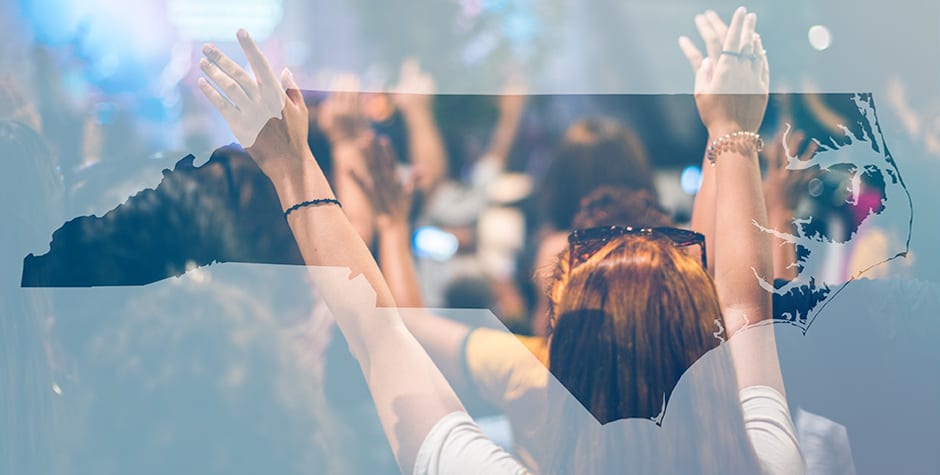PRAISE Act Overcomes Radical Left’s Veto Attempt and Becomes Law in North Carolina, Protecting Religious Liberty From Abusive Government Overreach
Listen tothis article
In a major victory for religious liberty, a bill preventing the kinds of bans on religious worship that we saw during the pandemic has recently become law in North Carolina, overcoming a radical Left’s veto attempt by the governor.
This new law, which includes the PRAISE Act alongside other reforms, provides a constitutionally sound way to protect religious liberty from abusive government overreach.
As you know, our sister organization, ACLJ Action, has been working with state legislators around the country to protect religious liberty. In order to protect the right to worship from unelected bureaucrats abusing their authority, ACLJ Action drafted model legislation titled the Protecting Religious Liberty in States of Emergency (PRAISE) Act. The PRAISE Act would ensure that religious institutions cannot be shut down while similar secular institutions remain open. ACLJ Action has been specifically targeting 28 states lacking these critical protections.
We are happy to report that the PRAISE Act recently became law in North Carolina as part of a broader bill. Key language adapting the PRAISE Act to North Carolina state law was included in a broader piece of health reform legislation, HB 237, which passed the Senate in May 2024. The language reads as follows:
(b) No religious institution shall be subject to an executive order, secretarial declaration, municipal or local government prohibition or restriction, or a rule or regulation by a political subdivision of this State that distinguishes between religious institutions and other public or private for-profit or nonprofit entities that are subject to or affected by the same or similar emergency in a way that imposes additional limitations on the religious institution. For the purposes of this subsection, the term “religious institution” has the same meaning as in 33 G.S. 131F-2.
HB 237 contained a variety of reforms to reinstate pre-COVID-19 rules in North Carolina. This critical language was overshadowed by the mass media’s preoccupation with the reinstatement of a ban on wearing masks in public places, mostly due to the protests on North Carolina college campuses concerning the Israel-Hamas war. North Carolina legislators defended the anti-masking language, insisting that it should be adopted to prevent bad actors from using masks to obfuscate their identities while committing crimes and intimidating citizens.
However, language concerning the mask ban did temporarily prevent the bill’s passage in the North Carolina House of Representatives. Fortunately, compromise language was eventually adopted to allow people to wear “medical or surgical grade masks” to prevent disease transmission alongside a provision permitting law enforcement and property owners to request that mask wearers temporarily remove their masks for proper identification. The amended bill passed the House by a 69-43 vote and passed the Senate again in June, heading to Governor Roy Cooper’s desk.
On Friday, June 22, Governor Cooper vetoed the legislation on the basis that he objected to a certain campaign finance provision that was included in the final bill. Following the veto, both chambers of the North Carolina General Assembly held a veto override vote. Republican supermajorities in both chambers successfully overrode the veto last week. The House overrode the veto by a 70-46 vote, and the Senate overrode the veto last Thursday by a vote of 30-14. HB 237 is now officially law in North Carolina, ensuring that citizens’ right to worship is protected from bureaucratic overreach during any future declared state of emergency. The law will now ensure that proper deference is granted to religious leaders and their members in determining whether to hold future religious services.
Rest assured that while ACLJ Action is satisfied with the success of the PRAISE Act in North Carolina, it remains hard at work in the 27 other states where your right to worship is not yet adequately protected. We look forward to sharing positive news about the future success of the PRAISE Act as it becomes law in more jurisdictions across the United States.
The ACLJ stands ready, willing, and able to defend the PRAISE Act in court should any challenge be made. We believe this is a constitutionally appropriate way to protect the religious liberty of countless Americans.
